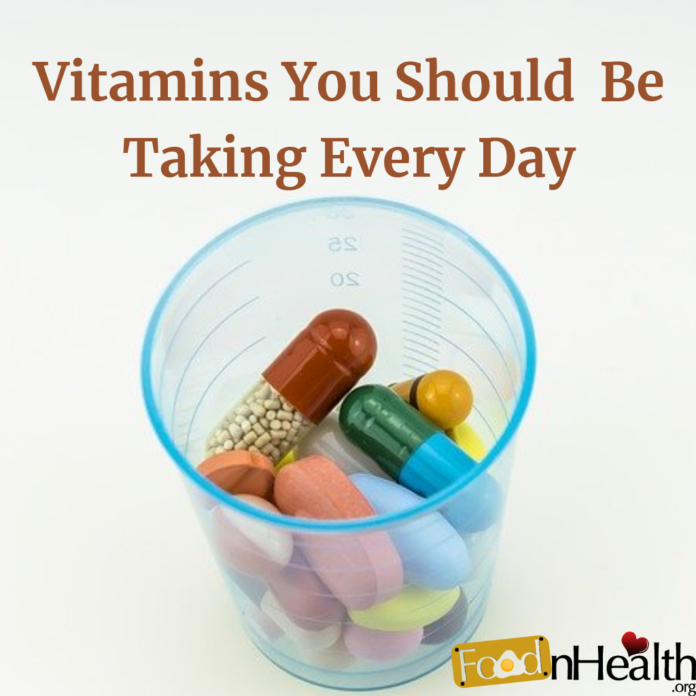Walking down the supplement aisle at your local big box or health food store can be a daunting experience. You’re face to face with hundreds of bottles making all sorts of claims, but which ones do you really need? You eat a healthy diet, so you’re getting all of your nutrients from your food, right?
Unfortunately, despite our best attempts, most of us do not get all of the micro- and macro-nutrients we need from our diet alone. The typical modern diet is low in nutrients and high in calories and processed foods.
Even if you’re eating your fruits and veggies every day, modern farming practices have depleted the nutrients in our soil, leaving us with food that has inadequate vitamin and mineral levels. We’re exposed to toxins in our water, air, food, and even cleaning and personal care products, which can interfere with vitamin and mineral absorption.
Most of us are leading a hectic, constantly-on-the-go lifestyle that puts our stress levels through the roof, which means we need more nutrients, not less. To make matters worse, all of these diet and lifestyle factors also affect our gut health, interfering with proper digestion, which means we’re not absorbing the nutrients we are getting efficiently.
So, between the lack of nutrition in our food and our inability to absorb vitamins and minerals efficiently… Yes, you probably should be taking a daily supplement!
Now that we’ve got that question answered, let’s dive right into which vitamins you should be taking every day.
How to Select Your Daily Vitamin Regimen
Here’s the thing. There’s no one perfect supplement regimen that’s going to be work for everyone. Your nutritional needs can vary greatly depending on your stress level, activity levels, gender, age, and other factors.
Start by evaluating your lifestyle and diet. Once you have identified which nutrients you’re likely to be deficient in, there are several vitamin companies that specialize in creating personalized supplement regimens. MBSF has the best roundup of custom vitamin brands, which makes the whole process very easy. Some even offer quizzes to help you pinpoint your regimen even further.
The Most Important Nutrients: Identifying What You Need
Here are the most important nutrients, along with who is likely to be deficient in them.
Calcium
Throughout infancy, childhood, and adolescence, calcium is crucial for building strong teeth and bones. In adulthood, calcium is important for maintaining bone mass and cardiovascular health. The USDA recommends that average adults get about 1,136 milligrams total of this mineral every day.
Dairy products are an excellent source of calcium, and it can be found in smaller amounts in beans, spinach, oatmeal, and some nuts. Teenagers, men over 70, women over 50, and anyone who doesn’t consume dairy products or other calcium-rich foods are the most likely to be deficient in calcium.
Potassium
Potassium is an essential nutrient that helps to regulate blood pressure. The average adult needs about 4,044 milligrams of calcium each day. Potassium can be found in small amounts in foods like beans, dairy, fish, and some fruits.
Potassium is a nutrient that you are very likely to be deficient in, and most people should include it in their daily supplement routine.
Magnesium
Magnesium is key for muscular and cardiovascular function, and for producing energy. The average adult needs about 380 milligrams of magnesium each day. Muscle cramps and twitching are common signs of deficiency.
Magnesium-rich food sources include nuts, beans, pumpkin, and some whole grains. Children who are 4 to 18 years old, adults over 50, and people who are overweight need additional magnesium and are the most likely to be deficient.
Vitamin A
Vitamin A is a crucial nutrient for cellular function, growth, and maintenance, as well as eye and vision health. It’s found in orange vegetables like sweet potatoes and carrots, as well as green, leafy vegetables such as spinach.
Children between the ages of 4 and 18, adults over 50, vegetarians, people who are overweight, those who overindulge in alcohol, and anyone who doesn’t eat Vitamin-A-rich foods are the groups that are most likely to be deficient in Vitamin A.
Vitamin C
Vitamin C is a crucial antioxidant that the body uses to make collagen, which is the connective tissue in our muscles, cartilage, bones, and blood vessels. It is also important for a healthy immune system.
Many fruits and vegetables contain Vitamin C in small amounts. Needs are higher for kids, adults over 50, those who smoke or are overweight. Your need for Vitamin c also increases during pregnancy and breastfeeding.
Vitamin D
Your body needs Vitamin D in order to absorb calcium. It’s essential for bone, dental, and immune health. It also plays a role in preventing chronic diseases like heart disease and cancer. The average adult needs 600 IU per day, and your requirements go up to 800 IU over the age of 70.
Vitamin D is found in some types of fish and in Vitamin D fortified foods. Our bodies also produce Vitamin D when exposed to sunlight. Sunscreen may interfere with the body’s ability to produce Vitamin D.
With our modern lifestyles, many people don’t get enough sun exposure to produce adequate amounts of Vitamin D, so you might want to include it in your daily supplement regimen.
Vitamin E
Vitamin E is an important antioxidant that fights cellular damage in the body. Nuts are the best food source for Vitamin E in the diet.
Children between 4 to 18 years old, adults over 50, and anyone who doesn’t eat Vitamin E rich foods could be deficient.
Final Thoughts
Nutrient deficiencies can have a negative impact on your health. Over time extreme deficiencies lead to malnutrition and illness, which is hard to miss. The thing is, being chronically deficient in just one certain nutrient often goes unnoticed until the consequences are severe.
And, that’s where daily vitamin and mineral supplements come in. They fill in any nutritional gaps in your diet to prevent any chronic deficiencies. They’ll help you stay healthy for the long haul.
If you’re not sure which nutrients you need, there are certain tests your doctor can run to determine where you’re deficient. Consulting with your healthcare provider before taking supplements is always a good idea, especially if you have a health condition.


























